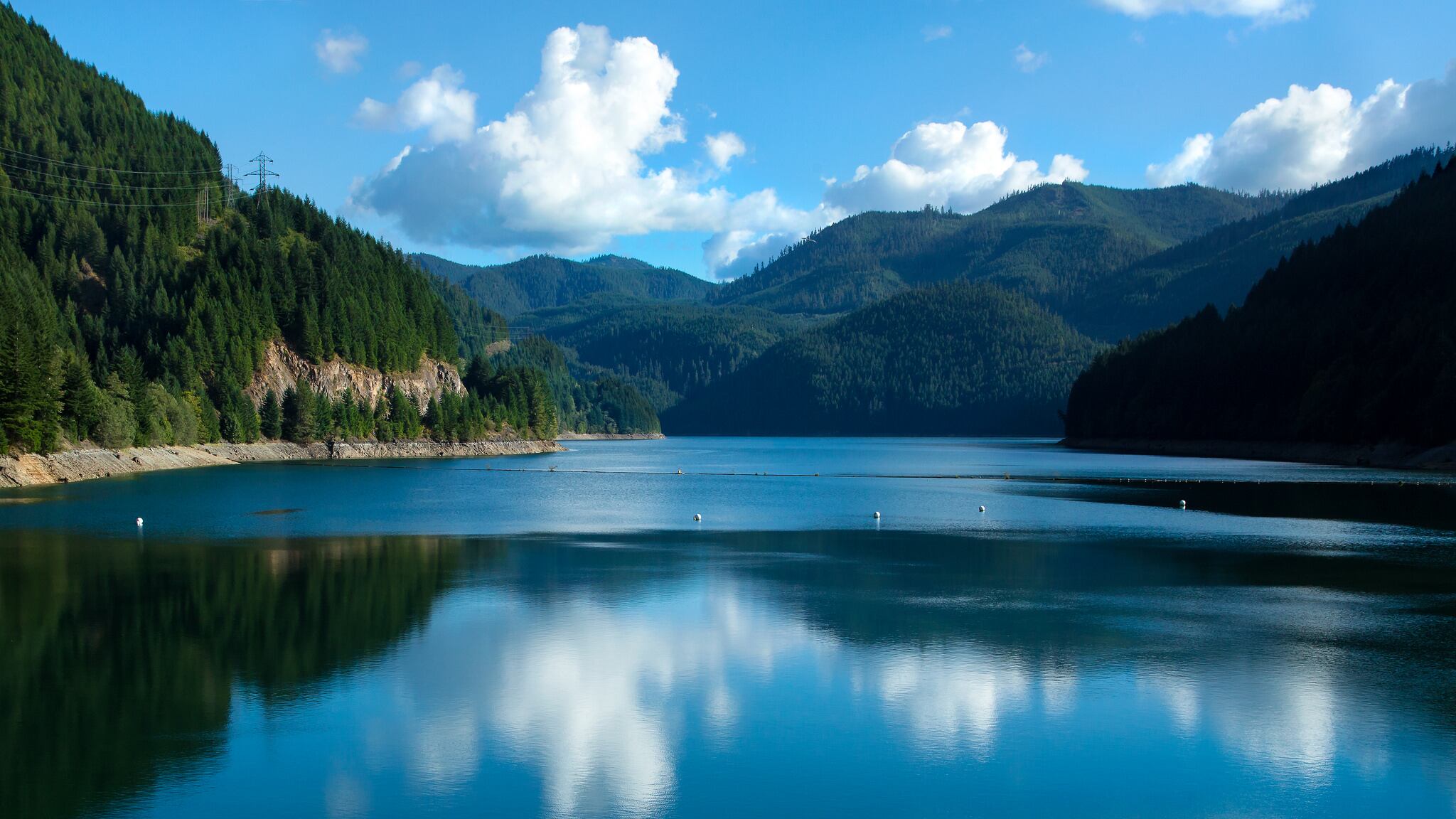In March, Joseph and Chelsea Hopkins had a flash of inspiration.
The couple looked at news stories projecting massive crowds flooding into Oregon to be the first Americans to watch this summer's full solar eclipse. And they realized: Those people are going to need some weed.
The Hopkinses own the Greener Side, the oldest cannabis dispensary in Eugene. A friend told them about a place in need of a pot shop: Detroit, a 217-population Cascade mountain town 53 miles east of Salem. The hamlet is home to scenic Detroit Lake and square in the path of the totality.
"There should be 60,000 to 80,000 people going through the valley," Joseph Hopkins says. "Detroit Lake is at the center of the eclipse—it'll stay darker longer than anywhere else."
They now have a building near Highway 22, a ready supply of bud, and a customer base arriving in less than three weeks.
The only problem? They're stuck in regulatory limbo with the Oregon Liquor Control Commission.

The state agency is so far behind in inspecting cannabis shops that it's unlikely to issue a license for the Detroit Lake shop by the Aug. 21 eclipse. That failure looms even though the Greener Side submitted an application to be licensed in Detroit on April 14, a little more than four months before the celestial event.
An OLCC inspector has yet to visit the shop. Not only that: The application hasn't even been handed to a site inspector.
"All I've heard is that we're still in the queue, and that they're still licensing people from the beginning of March," says Joseph Hopkins, who carefully watches his words. "The OLCC has been pleasant to work with, but the speed at which things are accomplished is slower than preferred."

The Hopkinses' dilemma is a symptom of a complaint Oregon cannabis shop owners started leveling shortly after voters legalized recreational pot in 2014: The state isn't keeping up with the pace of business.
"It's been really difficult for businesses to plan around the uncertain wait times," says Casey Houlihan, executive director for the Oregon Retailers of Cannabis Association. "It's definitely led to businesses burning through money and having to let people go while they wait."
The Hopkinses' case is perhaps the most extreme—if they don't get a license in the next two weeks, they'll miss a one-time-only market. But they aren't the only ones who've had to play waiting games with the OLCC.
Sean Wilson, owner of the Portland dispensary Ascend, had to close doors to his shop for five months while waiting for a license to sell recreational cannabis. Wilson was losing customers by offering only medical marijuana, and the recreational license delay was nearly fatal to his business. Ascend has since reopened, but Wilson says recovering lost customers is a slow process.
"We literally only had a couple people a day come in," Wilson says of the days after reopening. "We need at least 50 to 60 customers a day to even break even."
The OLCC blames an employee shortage for the long wait times.
Agency spokesman Mark Pettinger says 23 employees are responsible for reviewing and approving the more than 2,700 applications currently submitted to the agency.
He says the application timeline varies depending on how complete each application is—in the Hopkinses' case, it took the couple 10 days to furnish proof of local government land-use approval for their business.
Pettinger says it takes on average three to four months for an application even to be assigned to an investigator. He concedes that inadequate staff and a higher than projected volume of applications have spread the agency thin.
"We realize we can't continue at the same pace," Pettinger says.
To keep up with the flurry of cannabis shop applications, he says, the OLCC's marijuana division borrowed staff from the liquor division of the agency. Those employees have since had to return to their original jobs, increasing the wait for application approval.
Pettinger says additional hires for the cannabis sector of the OLCC have been approved by the Oregon Legislature—10 additional investigators and 12 inspectors—but it could take months to complete recruiting, vetting and training. "Our staff are doing the best work they can under the circumstances," he says.
That will be little consolation to the Hopkinses.
Projections vary on the number of eclipse tourists descending on Oregon—some reports say 1 million, others are more conservative. Everyone agrees, however, that the impact will be big. The OLCC recently advised liquor stores to stock their shelves for an expected 20-to-40-percent increase in sales.

Pettinger says no such suggestion has been issued to cannabis dispensaries, but he expects a high curiosity factor to drive up sales with so many out-of-state visitors coming from places where recreational cannabis use is illegal.
Joseph Hopkins is running out of patience.
"Big tourist events like this are a benefit to business," Hopkins says. "We've lost most of the entire summer at Detroit Lake. It sucks, and there's not much we can do until OLCC grants us an investigator."

